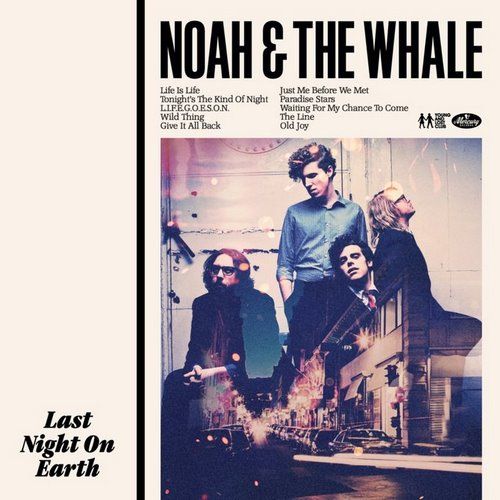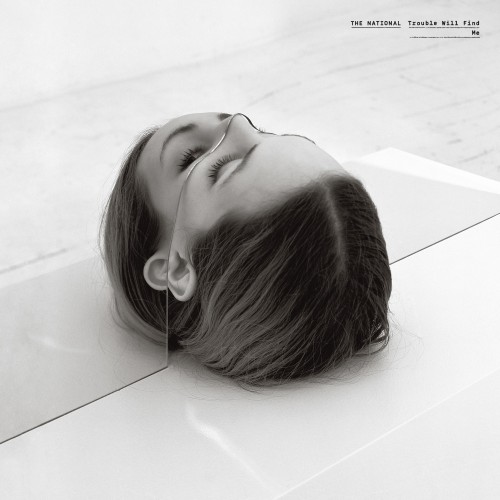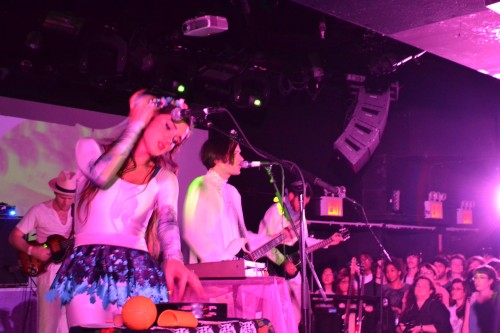By Ryan Leas
Noah & the Whaleis band whose existence is a bit unusual. Part of the current indie-folk scene in Britain, groups like Noah & the Whale and Mumford & Sons share the distinction of being English musicians who, even more so than exhibiting the influence of the tradition of American folk music, work fully within it. With their new album “Last Night On Earth,” Noah & the Whale diverge from this template and seek to establish new ground, relying upon strains of ’70s and ’80s pop that had previously only been latent in their music.
The fusion of American folk traditions and styles like ’80s synth-pop is an improbable one and has varying results. Noah & the Whale remain much brighter than the mope-rock influences they reflect here, often drenching what would-be catchy ’70s pop or folk-rock melodies in carpets of synthesizers rather than delving directly into a totally different genre. Determined to let you know they’re back with whole new aesthetic, the band kicks off the album with a drum machine beat and lots of bubbly synthesizers on the very un-folk “Life is Life.”
That’s not to say that the band has totally abandoned what they have always done well in favor for stylistic experimentation. They still work within their familiar idiom but incorporate the odd strain of the ’80s here and there. The atmospherics and despondent calm of “Wild Thing”make it a less lachrymose update of a classic ’80s indie ballad. Elsewhere, lead singer Charlie Fink’s suddenly there and suddenly gone emphatic vocal at the end of “Give It All Back” recalls the climaxes of Echo and the Bunnymen’s“The Cutter.” Though it is too short-lived, the outburst is one of the album’s best moments. It’s also not the only place where Fink conveys Echo and the Bunnymen frontman Ian McCulloch’s brooding croon, finding comfort in his lower register in “Just Me Before We Met.”
The band often get away with some touches that would come off as cheesy elsewhere but also occasionally fall prey to their flirtation with such sounds. Album standout “Waiting for My Chance to Come”matches a fervent, group-sung chorus with the augmentation of an arpeggiating synth that would have sounded at home on Gorillaz’s“Demon Days.” The sprightly synth of “The Line” sounds like a modern revitalization of some great lost song from a John Hughes film as its protagonist asks “Is this the line? Is this the line? Is this the line between Heaven and Hell?” amidst personal crises. The strength and poignancy of those two songs give way to album closer “Old Joy,”where the superfluous use of ambient synths distracts from the soul at the core of the song’s ragged gospel chorus.
Moments like “Old Joy” are not so numerous that they overpower the album, but they are noticeable. Sometimes, the aesthetic adventures on “Last Night on Earth” seem like pointless and incongruous flashiness, like the band is simply trying to change it up where they would have done better to rely on their folk-oriented strengths. Typically, Fink’s voice has enough character to ground even the situations that fail and come close to being hackneyed or saccharine. There are definitely some great moments on “Last Night on Earth,” and a few where Noah & the Whale successfully expand their sonic palette. In the future, however, it might be better if the band musically adheres to more of the earthiness that is still present in Fink even as he battles a few overproduced synthesizers, or that they at least endeavor to better streamline their new experimentation with their already-established sound.
62/81




Leave a Reply